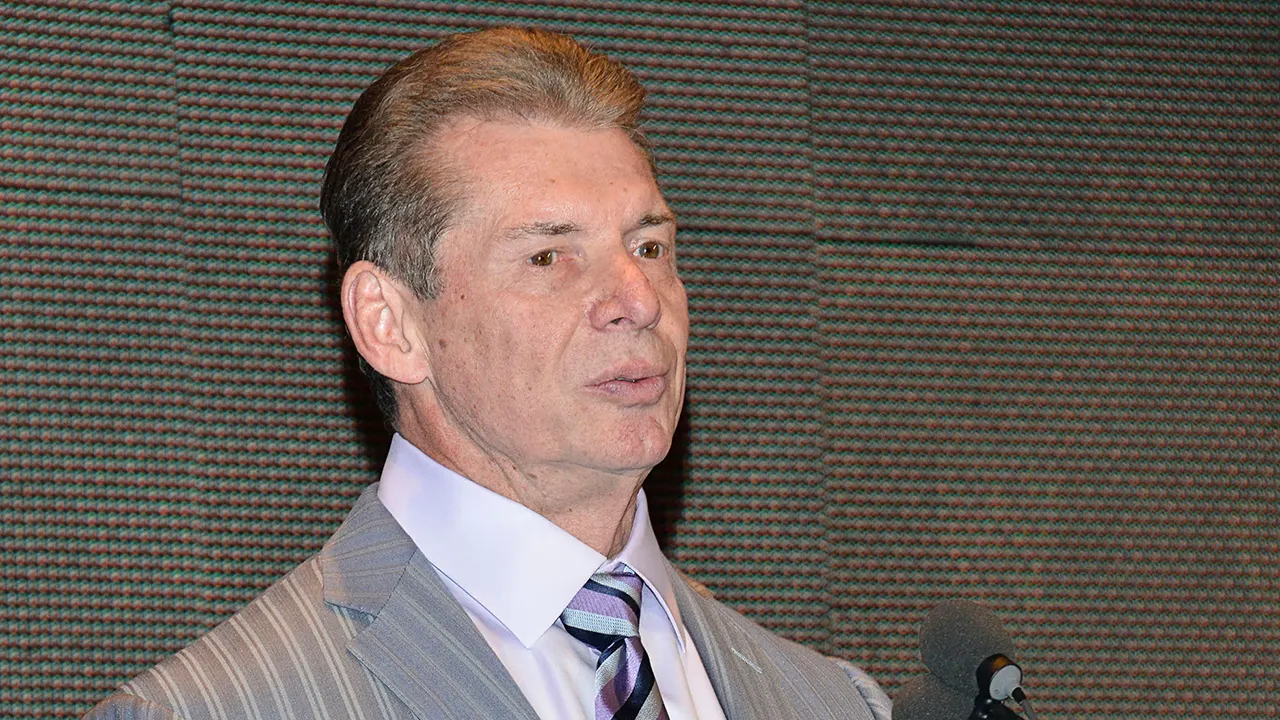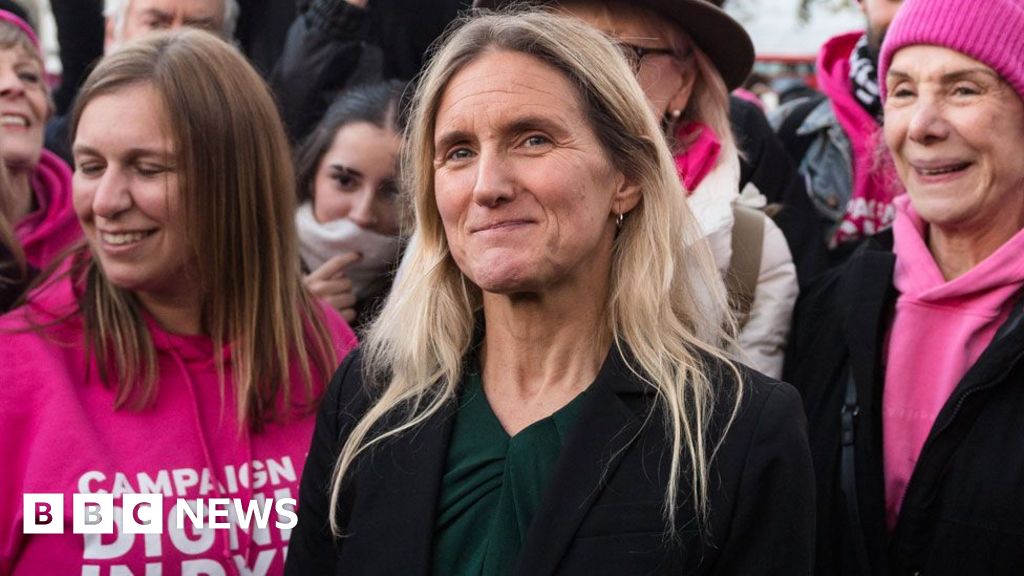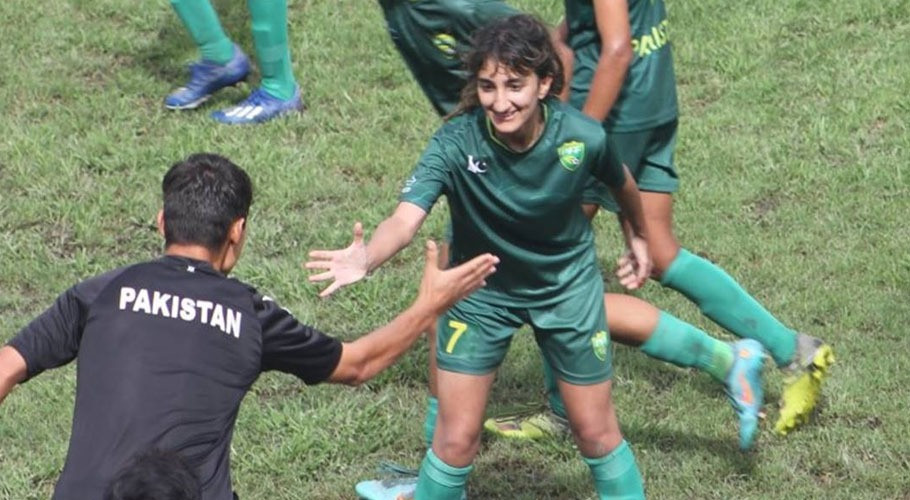KARACHI:
There are very few things that trump the goodness of pure efficiency, among the things that do trump it are honesty, integrity, inclusivity, and most of all equality.
All the above traits are seem missing from the Pakistan women’s national football team, which has played two tournaments since making its historic comeback to the international stage in the last six months.
The way women’s football is being used to embellish the image of the Pakistan Football Federation (PFF) Normalisation Committee (NC) is pushing the women’s game backwards only.
It all started back in August, when the PFF-NC had been preparing to send the women’s team to the 2022 South Asian Football Federation (SAFF) Women’s Championship, which took place in Nepal.
PFF-NC’s focus on overseas players led to the FIFA rules violation at SAFF, where they fielded an ineligible player.
Nadia Khan came from the UK and played in the tournament without even having a Pakistani passport, which is a violation of FIFA rules.
PFF-NC head Haroon Malik admitted in the press conference last month that Nadia did not hold a Pakistani passport at the time. Nadia had performed well at the SAFF event, scoring four goals in the last group match against Maldives.
When the SAFF President and the secretary were asked this week about it, they were unsure how Nadia had played the tournament without the passport in September. It raised questions on the integrity of the tournament, the regional federation, and also the dealings of PFF-NC.
“We can assure you that no player can play without having their passport,” SAFF secretary Anwarul Haq Helal told The Express Tribune, while the SAFF President Kazi Salahuddin expressed his disbelief at the situation first, adding that he will investigate the matter.
“It is not possible because the players are required to submit/show their passports when registering at the tournament. It is certainly a matter I have to look into because I will need to look at the file of this player,” said Helal as he head out to attend a football tournament, promising to address the matter again.
Earlier, it had been learnt that at the SAFF championship, the PFF got Nadia entry through the National Identity Card for Overseas Pakistanis (NICOP). The PFF told the SAFF administration that she has applied for the passport which had not been issued to her at that time.
An official, who has been a part of the SAFF management, unwittingly admitted that Nadia was allowed to play because Pakistan were coming back after eight years. Also, they felt the “holding of nationality” can be proved by holding NICOP, so they cooperated with PFF-NC in good will.
Article 19 paragraph three of the Regulations for the FIFA World Cup Qatar 2022 Preliminary Competition provides that, “only document considered to be valid proof of a player’s identity and nationality shall be a permanent international passport that explicitly, and in Latin characters, states the player’s first name(s) and surname(s), as well as his day, month, and year of birth. Identity cards or other local supporting official documents shall not be accepted as a valid means of identification.”
The passport was not issued to Nadia even in January 2023, primarily because there was an error in verifying her connections to Pakistan.
Meanwhile, there were other two players who had never applied for the passport to begin with and still travelled to Saudi Arabia as a part of the team. The three could not be fielded, however, because Saudi Arabia was following the FIFA rules.
Last month, Haroon was quoted by a Pakistani newspaper saying, “This is FIFA regulation that players play with passports. They had already applied for that. Effort was made to expedite the process and until the last day we hoped that passports would come.
“All our positions were well-covered and that is why we stood second in the tournament.
“These were impact players, and much difference could have been created with them but I am hopeful for the future as passports will be issued.”
SAFF officials had also told The Express Tribune to ask these questions to the PFF-NC, but the latter refused to share information properly.
Another example is that the players were not allowed to talk to the media freely, neither at the time of SAFF, nor during the Four-Nation Cup that Pakistan played with Saudi Arabia, Mauritius, and Comoros.
It all became suspicious back in September too, when the PFF were asked repeatedly to let the players talk. Many older players had to stay quiet and when the PFF-NC was asked about the limitations and restrictions on players’ interviews, the answer was unsatisfying.
“The coach decides which players will talk,” The Express Tribune was told by the then NC member and media manager Shahid Khokhar. When told it doesn’t happen anywhere, we were told that it was in the coach’s hands.
From that point onwards, the members of the media were stopped from doing their jobs. The players who were seen on social media and the PFF channels were answering very timid questions at best.
The trend seems to have followed in January too where captain Maria, who scored a good goal on free kick in Saudi Arabia was promoted on the PFF-NC platforms, but none of the journalists who may have tougher questions to ask were allowed to speak to her.
Meanwhile the divide within the team can be seen as Maria speaks the language that an average Pakistani girl does not. It affects their confidence and their morale on and off the field. There is a discrepancy between what is and what is being projected on the media.
Where to draw the line?
Apart from that many female players have also complained of toxic work environment, under head coach of the Pakistan women’s football team, Adeel Rizki.
Even after complaints over Rizki’s work ethic, players have revealed that Haroon never took any action, instead enabling the UEFA license-B certified coach.
All stakeholders are men
On-field activities aside, PFF-NC held a football summit as a three-member delegation from FIFA and the Asian Football Confederation (AFC) visited Pakistan in January. There had been reports that the delegation met the stakeholders of the Pakistani football.
But none of the FIFA-AFC officials, including the lead of the delegation, FIFA’s Head of Member Associations Governance Rolf Tanner, were able to hear the concerns of the women in the game.
There had been suggestions to make the changes in the PFF statutes as well, however, the women ‘stakeholders’ were missing, and their voice was ignored.
“Every time we wanted to speak about our concerns to the FIFA and AFC delegates, we felt that we were blocked and stopped. There was always someone from the PFF-NC lurking around and would sweep away the FIFA-AFC officials, so our voice was not really heard at all,” said one participant.
As for the women’s stake in the PFF, according to the constitution that was updated last time in 2014, there are four votes from women in the congress as well as four seats in the composition of the PFF congress. There seems to be a complete blackout of the women who are certified to be in the footballing business and administration and are being kept away from the table.
Whenever the elections will take place again, there will be women who will be cherry-picked, and watching Rizki’s position with Haroon it looks like there is maybe an end game too. One of the votes in the constitution belongs to the club that will win the national women’s championship.
In this case, Rizki runs Karachi City FC and has many players in the national team from his own club.
There is no chair for the women representatives who are working in the field and have the education, and it’s the men who are fighting for the biggest share.
Overall, the way women’s football and women are treated at the PFF level is only reflecting of the olden times and setting the clock backwards, instead of making valuable changes.















































